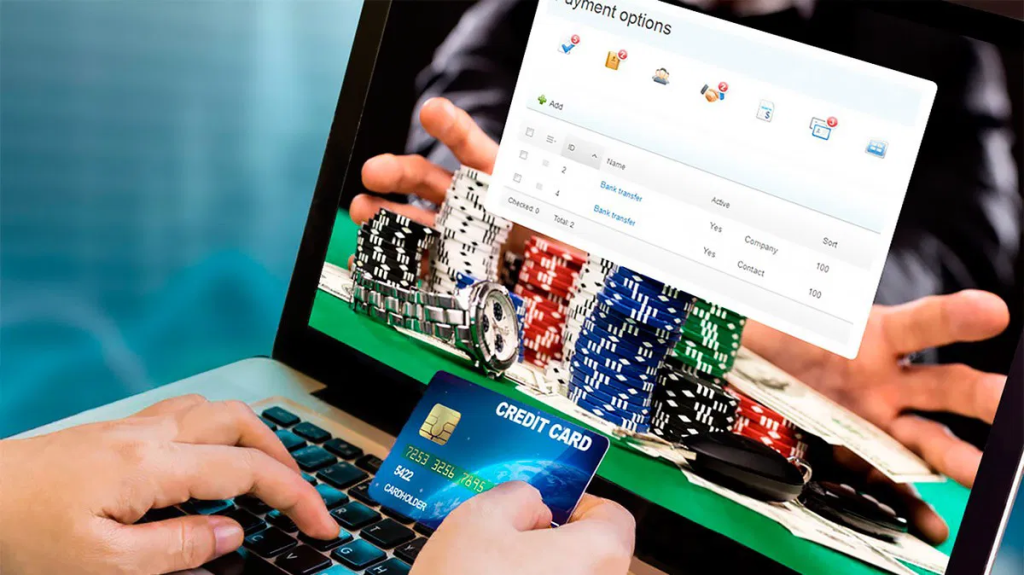In the rapidly evolving world of online gambling, payment security remains a top concern for players. Whether you’re depositing funds to play your favorite games or withdrawing your winnings, understanding the various secure online casino payment methods is crucial for protecting your financial information and ensuring smooth transactions. This comprehensive guide examines the most trusted payment options available to online casino players, exploring their security features, convenience factors, and potential limitations.
The Evolution of Online Casino Banking
The landscape of casino payments has transformed dramatically since the early days of online gambling. What began as simple credit card transactions has evolved into a diverse ecosystem of payment options designed to address various player needs, regulatory requirements, and security concerns.
From Traditional to Digital
Initially, online casinos relied heavily on traditional payment methods:
- Credit and debit cards
- Bank transfers
- Wire transfers
- Paper checks
While these methods remain available, the digital revolution has introduced numerous alternatives offering enhanced privacy, faster processing, and improved security protocols.
Regulatory Influences on Payment Options
Payment method availability varies significantly by jurisdiction due to:
- Local gambling regulations
- Banking restrictions
- Anti-money laundering requirements
- Know Your Customer (KYC) procedures
Players in regulated markets typically have access to more mainstream payment options, while those in gray or restricted markets may need to rely on alternative methods.
Credit and Debit Cards: Convenience vs. Concerns
Despite newer alternatives, credit and debit cards remain among the most commonly used deposit methods at online casinos.
Security Features and Limitations
Modern card payments utilize several security layers:
- Chip technology for physical cards
- CVV/CVC verification codes
- 3D Secure protocols (Verified by Visa, Mastercard SecureCode)
- Real-time fraud monitoring systems
However, potential drawbacks include:
- Direct exposure of card details to the casino
- Higher rejection rates in some jurisdictions
- Potential gambling blocks by issuing banks
- Privacy concerns with gambling transactions appearing on statements
Best Practices for Card Usage
When using cards for casino transactions, consider these safety measures:
- Use only at licensed, regulated casinos with proven security records
- Verify the casino employs SSL encryption for all financial data
- Consider using a dedicated card with limited funds for gambling activities
- Regularly monitor statements for unauthorized transactions
E-Wallets: The Security-Conscious Player’s Choice
Electronic wallets have become increasingly popular in the online gambling space, offering a security buffer between your banking information and the casino.
How E-Wallet Security Works
E-wallets provide enhanced protection through:
- Tokenization of financial data
- Elimination of direct card or bank information sharing
- Two-factor authentication options
- Dedicated fraud protection teams
- Separate passwords and security questions from banking credentials
Popular E-Wallet Options for Casino Players

Several e-wallet providers have established strong reputations in the online gambling sector:
PayPal
- Limited to fully regulated markets
- Exceptional security infrastructure
- Instant deposits and quick withdrawals
- High transaction limits for verified users
Skrill
- Widely available across gambling markets
- Offers dedicated VIP program for high-volume users
- Supports multiple currencies
- Features dedicated gambling functionality
Neteller
- Specialized in gambling transactions
- Offers high security with two-factor authentication
- Provides proprietary Net+ prepaid cards
- Supports rapid fund transfers between users
ecoPayz
- No credit check required
- Multiple security tiers based on verification level
- Anonymous basic accounts available
- Dedicated gambling industry support
Potential Limitations
While offering superior security, e-wallets have some disadvantages:
- Often excluded from welcome bonus eligibility
- Additional fees for some services or currency conversions
- Account verification requirements for higher limits
- Potential account suspensions for gambling in restricted territories
Cryptocurrency: The Future of Casino Payments?
The emergence of blockchain technology has introduced cryptocurrency as a revolutionary payment option for online casinos, offering unprecedented privacy and security features.
Security Advantages
Cryptocurrency transactions provide several unique security benefits:
- Decentralized verification through blockchain
- No requirement to share personal financial information
- Cryptographic security making transactions virtually tamper-proof
- Elimination of chargebacks and payment disputes
- Privacy-focused options for complete anonymity
Common Cryptocurrencies in Online Gambling
Several cryptocurrencies have gained traction in the gambling space:
Bitcoin (BTC)
- The most widely accepted cryptocurrency at online casinos
- Relatively stable compared to newer alternatives
- Extensive security infrastructure and market presence
- Growing mainstream acceptance
Ethereum (ETH)
- Smart contract capabilities offer potential for provably fair gaming
- Faster transaction times than Bitcoin
- Supports decentralized gambling applications
- Lower fees than Bitcoin during network congestion
Litecoin (LTC)
- Faster confirmation times than Bitcoin
- Lower transaction fees
- Similar security infrastructure to Bitcoin
- Growing adoption among gambling operators
Tether (USDT) and USD Coin (USDC)
- Stablecoins pegged to the US dollar
- Reduced volatility concerns
- Maintains cryptocurrency security benefits
- Easier to understand value for traditional players
Practical Considerations
While offering significant security advantages, cryptocurrency has practical challenges:
- Significant price volatility
- Learning curve for new users
- Irreversible transactions (errors cannot be corrected)
- Limited customer support for transaction issues
- Complex tax implications in many jurisdictions

Bank Transfers and Instant Banking Services
Traditional banking methods remain viable options for players who prioritize institutional security and regulatory oversight.
Direct Bank Transfers
Standard bank transfers offer:
- High security through banking institution protections
- Substantial deposit and withdrawal limits
- Familiarity and ease of use
- Direct integration with personal banking
However, they typically involve:
- Longer processing times, especially for withdrawals
- More extensive information sharing with the casino
- Potential rejection by banks with anti-gambling policies
- Less anonymity than alternative methods
Instant Banking Solutions
Several services have emerged to combine bank-level security with improved convenience:
Trustly
- Popular in European markets
- Allows direct bank payments without account creation
- Immediate transaction confirmation
- No registration process required
Interac
- Dominant in the Canadian market
- Uses email transfers for simplified transactions
- Strong security infrastructure
- Widespread banking integration
iDEAL
- Netherlands-focused payment system
- Direct integration with Dutch banking system
- Real-time transaction processing
- High consumer trust and adoption
These services leverage existing banking infrastructure while eliminating some traditional limitations.
Prepaid Solutions: Separation for Enhanced Security
For players particularly concerned about privacy and limiting exposure, prepaid options offer significant advantages.
Prepaid Cards
Options like Paysafecard provide:
- Complete separation from personal banking
- Cash-based funding options
- No personal data required for basic usage
- Predetermined spending limits
This approach effectively creates a financial firewall between gambling activities and personal finances.
Virtual Credit Cards
Services offering single-use or limited virtual credit cards provide:
- Unique card numbers for each transaction
- Preset spending limits
- Expiration after single use
- Protection from data breaches
These solutions minimize risk while maintaining the convenience of card payments.

Mobile Payment Methods
As gambling increasingly shifts to mobile platforms, phone-integrated payment solutions have gained popularity.
Pay-by-Phone Services
Services like Boku and Zimpler allow:
- Charges directly to phone bills or prepaid balances
- Minimal information sharing
- Simple verification through SMS confirmation
- No banking details required
These options typically:
- Have lower transaction limits
- Often support deposits only (not withdrawals)
- Include service fees in some cases
- Offer limited dispute resolution options
Mobile Wallet Integration
Services including Apple Pay and Google Pay provide:
- Tokenized transactions for enhanced security
- Biometric authentication
- Device-specific security features
- Simplified checkout experience
These solutions combine convenience with advanced security protocols, though availability at online casinos varies by jurisdiction.
Evaluating Payment Method Security
When choosing the most secure payment method for your circumstances, consider these key factors:
Encryption Standards
Look for:
- SSL/TLS encryption for all transactions
- PCI DSS compliance for card processing
- End-to-end encryption for data transmission
- Secure data storage policies
Authentication Requirements
Stronger security typically involves:
- Two-factor authentication options
- Biometric verification where available
- Unique passwords or PINs
- Login notifications for account access
Data Sharing Minimization
Consider how much information is shared:
- Does the method expose your banking details to the casino?
- Is transaction data visible on bank statements?
- Are personal details required for processing?
- How is data stored after transactions?
Dispute Resolution Processes
Evaluate recourse options:
- Chargeback availability
- Transaction reversal capabilities
- Customer support accessibility
- Resolution timeframes
Withdrawal Security Considerations
While deposit security is critical, withdrawal protection is equally important for protecting your winnings.
Verification Requirements
Understand that secure casinos implement:
- Identity verification before first withdrawal
- Document authentication procedures
- Address verification requirements
- Payment method ownership confirmation
These steps, while sometimes inconvenient, represent essential security protocols.
Common Withdrawal Restrictions
Be aware of standard security measures:
- Withdrawal method matching deposit method where possible
- Minimum and maximum withdrawal limits
- Processing timeframes varying by payment type
- Additional verification for large withdrawals
Regional Variations in Payment Security
Payment security standards and available options vary significantly by geography.
European Markets
European players typically benefit from:
- Strong regulatory frameworks under gambling authorities
- GDPR data protection compliance
- Banking integration through PSD2 regulations
- Widespread availability of instant banking options
North American Landscape
The United States and Canada present a complex environment:
- State/provincial level regulation creating inconsistency
- Limited banking options in newly regulated markets
- Growing cryptocurrency adoption as an alternative
- Evolving regulatory frameworks affecting payment availability
Asian Markets
Across Asian jurisdictions:
- E-wallets dominate in many regions
- Alternative payment networks have strong presence
- Banking restrictions often limit traditional methods
- Local payment solutions vary significantly by country
Recommended Resources
For players seeking additional information about secure payment options:
- Gambling regulatory authority websites that validate payment methods
- Independent testing laboratories that verify casino security
- Consumer financial protection organizations
- Online communities discussing payment experiences
Conclusion
Selecting the right payment method for online casino transactions involves balancing security, convenience, privacy, and accessibility. The ideal choice varies based on individual priorities, geographic location, and specific gambling habits.
E-wallets generally offer the best all-around combination of security and convenience for most players, while cryptocurrencies provide maximum privacy and autonomy. Traditional banking methods remain reliable options with institutional protections, and prepaid solutions offer excellent security through separation from personal finances.
Regardless of your chosen method, always:
- Verify the casino’s licensing and reputation before depositing
- Use unique, strong passwords for all gambling accounts
- Enable additional security features when available
- Regularly monitor transactions for unauthorized activity
- Understand the terms and conditions for both deposits and withdrawals
By taking these precautions and selecting payment methods aligned with your security priorities, you can enjoy online gambling with confidence that your financial information remains protected.
Frequently Asked Questions
Which online casino payment method offers the fastest withdrawals?
E-wallets typically provide the fastest withdrawal times, often processing within 24 hours and sometimes instantly. Cryptocurrencies can also offer rapid withdrawals once the casino processes the request, though internal approval times vary by operator. Traditional methods like bank transfers generally take 3-5 business days.
Are cryptocurrency transactions at online casinos truly anonymous?
While cryptocurrencies offer significantly enhanced privacy compared to traditional payment methods, complete anonymity depends on several factors. Transactions on public blockchains like Bitcoin can be traced, though not easily linked to individuals without additional information. Licensed casinos still require KYC verification for regulatory compliance, which limits true anonymity.
Why do some casinos exclude e-wallet deposits from welcome bonuses?
Casinos sometimes exclude e-wallet deposits from bonus eligibility due to higher processing fees and the increased risk of bonus abuse. The enhanced anonymity and simplified account creation process with e-wallets makes it easier for players to create multiple accounts, prompting operators to implement these restrictions as a protective measure.

